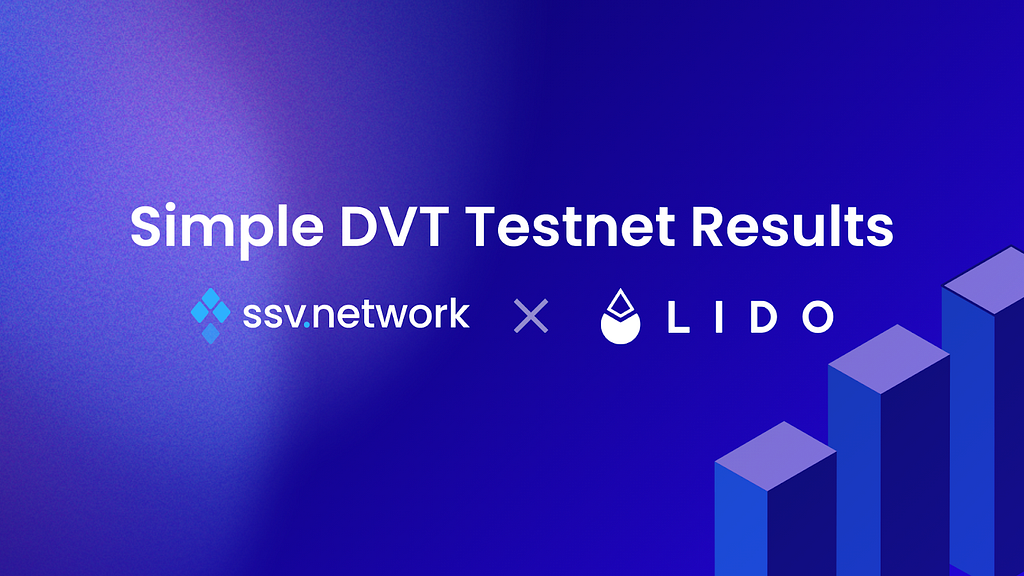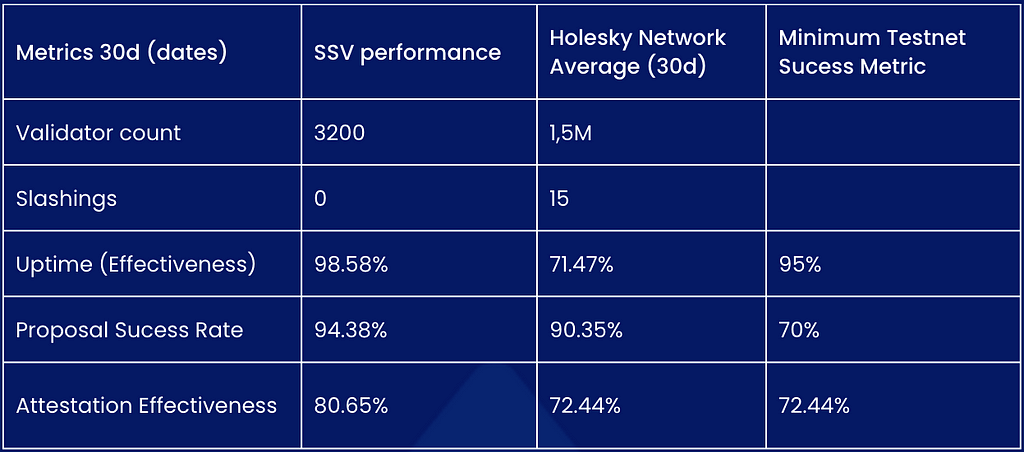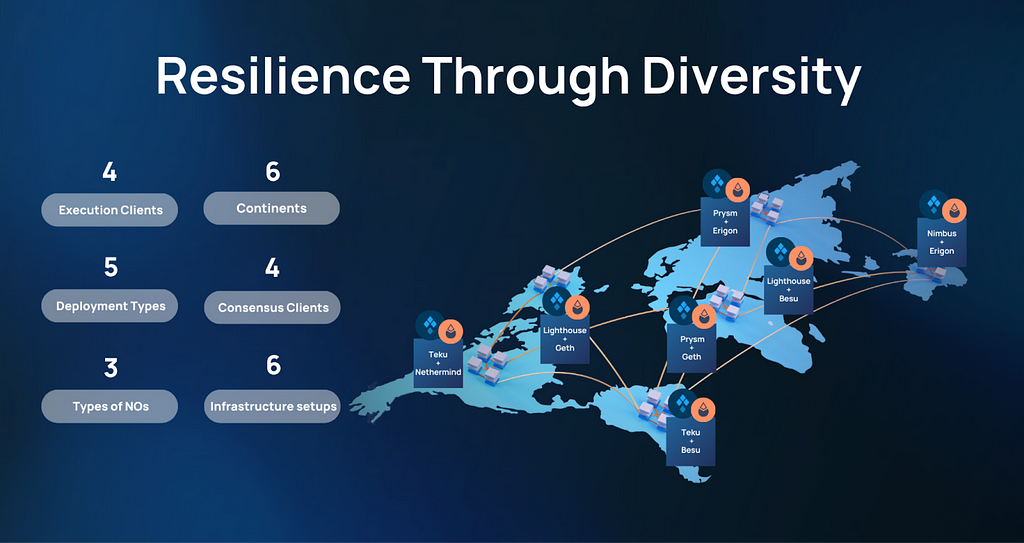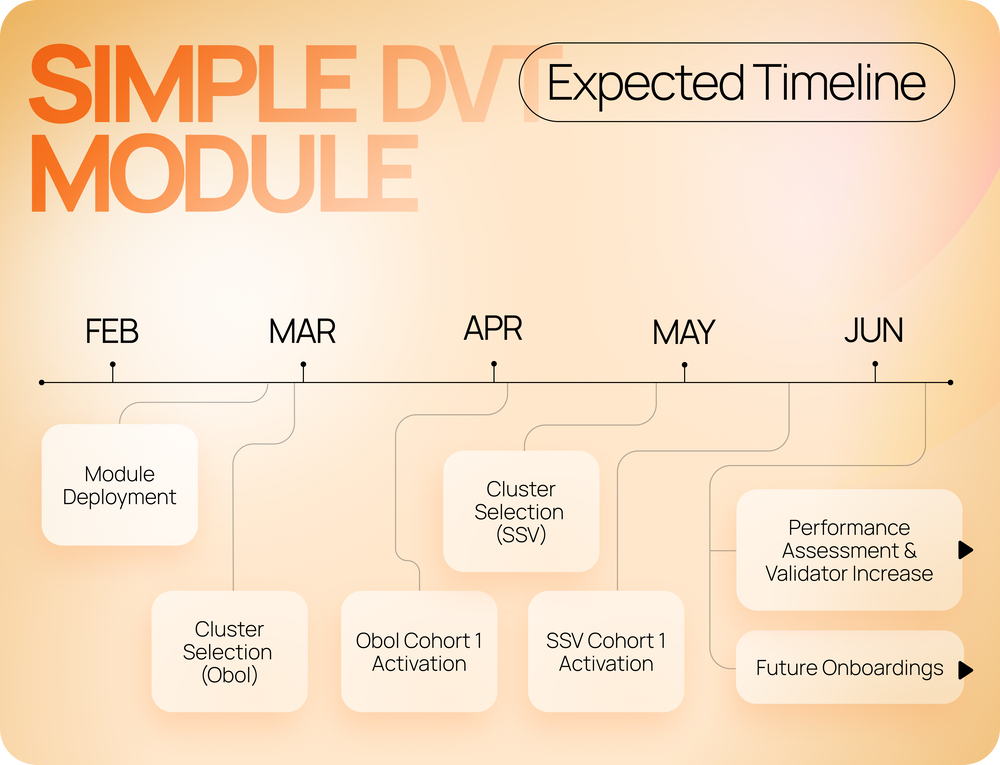Lido x SSV Simple DVT Holesky Testnet Results
Discover how SSV Network's Simple DVT Holesky Testnet outperformed expectations, paving the way for a more decentralized staking future.

The ssv.network DAO is thrilled to share insights from the recent Simple DVT Holesky Testnet, conducted in collaboration with Lido LNOSG and staking community. This report outlines the key findings from the test, shedding light on the performance of the SSV node with distinct community node operators.
Across-the-board, SSV nodes exceeded the requirements set by the LNOSG and will continue to move forward with the Simple DVT mainnet deployment.
The Simple Distributed Validator Technology (DVT) Testnet on Holesky aimed to prepare for the imminent launch of Lido’s SimpleDVT staking module on mainnet. The implementation of DVT within the SimpleDVT module presents significant benefits for Lido, enhancing node operator resilience, scalability, and decentralization.
By enabling a single validator to be operated by multiple machines, DVT promotes increased participation and collaboration, facilitating alignment between smaller and larger operators, thus fostering a more diverse and robust network. This approach not only allows for seamless integration of at-home validators with Lido but also offers a rapid method for adding diverse Node Operators (NOs) to the Lido Node Operator set, potentially expanding the protocol’s mainnet validators by over 600%.
The testnet commenced on November 22nd 2023, featuring 32 clusters and a 5/7 threshold configuration, engaging 192 individuals and organizations. Following a brief hiatus due to infrastructure and tooling issues, testing resumed on January 3rd, involving 177 participants.

The test was concluded on 18 April, 2024. Noteworthy challenges included issues with Holesky SAFE, Walletconnect, and the SSV Web app, resulting in some participants facing difficulties with setup completion. During the first weeks of the monitoring period the initial evolution of the Holesky testnet caused considerable turbulence. This was mostly due to issues with the Deneb fork, client bugs on testnet, as well as the absence of MEV relay infrastructure initially.
As most of the challenges were resolved the findings indicate that the deployment of the Simple DVT module on the mainnet can effectively and securely onboard a substantial influx of new Node Operators into the Lido protocol.
The 177 participants in 32 clusters comprised advanced NOs, participants from prior testnets, solo stakers, and NOs from Lido’s curated list. To ensure optimal distribution, NOs from various geographical locations, different client setups, MEV relays, and infrastructural components participated. This diverse representation showcased the versatility of DVT in creating resilient and decentralized node operations within Lido.

The testnet achieved impressive metrics, albeit with variations compared to SSV mainnet performance. Notably, the network saw a high attestation effectiveness rate of 80.65% and uptime over 95%, with minor discrepancies observed in individual operator performance. Despite challenges such as the Deneb fork, client bugs, and others, the SSV nodes demonstrated resilience and adaptability, laying a solid foundation for developments on Lido mainnet.
Key takeaways include the importance of optimal NO setups and hardware, the readiness of the testnet environment, and the need for effective coordination tools. Recommendations focus on enhancing network support structures, improving tooling capabilities, and scheduling trials during periods with fewer holidays to minimize disruptions.
Moving forward, the LNOSG have evaluated trial outcomes and proposed clusters that will advance to mainnet pending review. Additionally, preparations are underway for the next testnet, inviting participation from solo stakers, community stakers, and professional node operators.

Those interested in participating in the upcoming testnet should fill out the form to apply and contribute to the continued development of the Simple DVT Module.
Website | Builders Hub | Network Hub | Discord | Dev Center | Documentation | GitHub